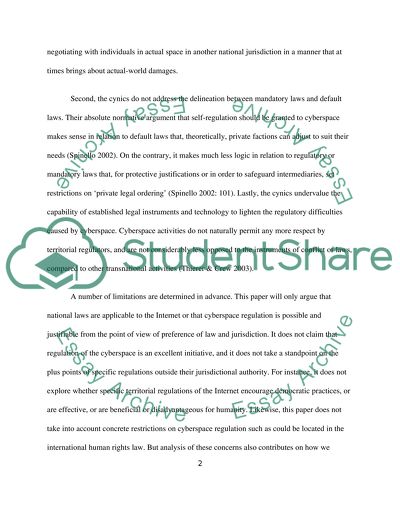Cite this document
(Laws of Nation-States Against Cyber Anarchy Term Paper, n.d.)
Laws of Nation-States Against Cyber Anarchy Term Paper. Retrieved from https://studentshare.org/law/1560508-business-law-ethics
Laws of Nation-States Against Cyber Anarchy Term Paper. Retrieved from https://studentshare.org/law/1560508-business-law-ethics
(Laws of Nation-States Against Cyber Anarchy Term Paper)
Laws of Nation-States Against Cyber Anarchy Term Paper. https://studentshare.org/law/1560508-business-law-ethics.
Laws of Nation-States Against Cyber Anarchy Term Paper. https://studentshare.org/law/1560508-business-law-ethics.
“Laws of Nation-States Against Cyber Anarchy Term Paper”, n.d. https://studentshare.org/law/1560508-business-law-ethics.


